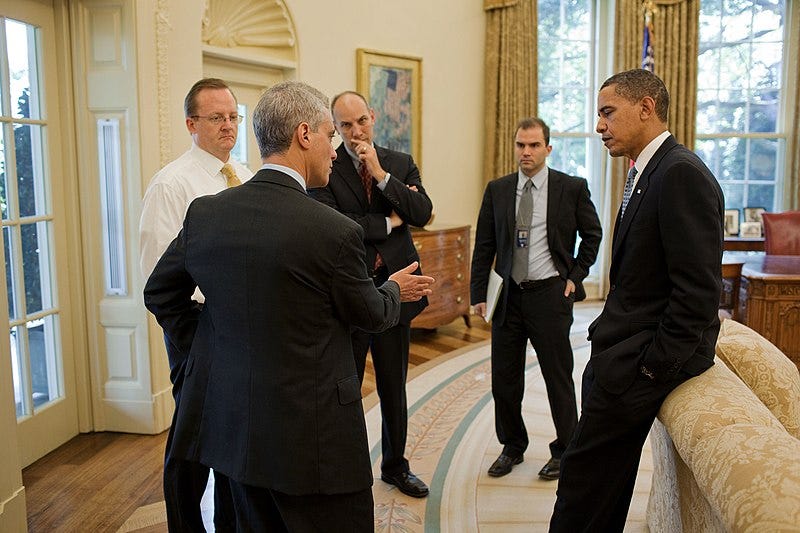The Art of National Security Sophistry Revisited
The seven rhetorical tactics of national security propagandists.
Ben Rhodes had a sober piece in Foreign Affairs critiquing the Washington establishment (or at least doing so as deeply as you can in an establishment journal). Toward the end of the essay, he says:
National security elites underestimate how incomprehensible and self-censoring they sound to most people. The studious acronyms, the ceaseless jargon (think: “the Quad” and “frank and candid discussions”), the expressions of “deep concern” about things the U.S. does nothing about, and the repetition of paeans to the “rules-based international order” sound more like they are designed to conceal truth than reveal it.
100%. I criticized the Biden administration in 2022 for this very problem.
Separately, the top of my bedside reading includes a rich, unconventional book by Arundhati Roy called The Architecture of Modern Empire. In it, she mentions several times that policy elites use rhetorical complexity to mask choices by the state that directly enrich the few and harm the many. The people have no access to policy because it’s deliberately made esoteric.
And then Waleed Shaheed’s “A Populist Manifesto for Democrats” advised that “Policy must be stupidly simple” or it’s liable to be unpopular.
Rhodes, Roy, Shaheed—it all rhymes. The trouble is that the problem of the national security state’s habit of fuzzy language and even fuzzier thinking is by design. Any system that robs the public welfare and externalizes violence in a manner that enriches the frothy, aristocratic, cream at the top of society cannot simply admit to running a scam against working folks—they must dress it up in emotive and/or confusing appeals. It’s safe to say that many people who make a living in the national security state would not want to be involved if they had to acknowledge the upward redistributions of wealth and downward redistributions of violence their vocation contributes to.
With all of this in mind, I thought it appropriate to reshare my seven tricks of national security sophists to effectively filibuster critical thinking.


